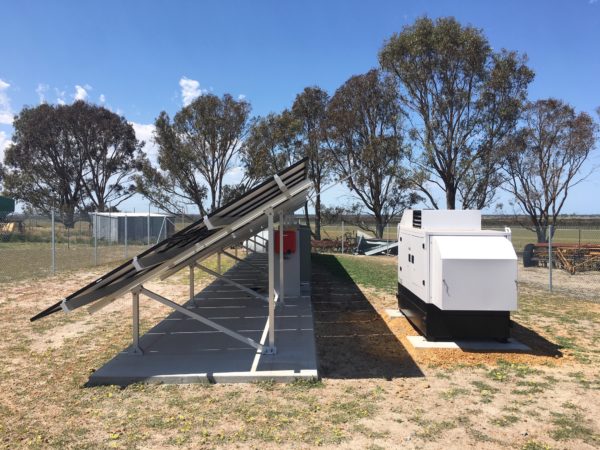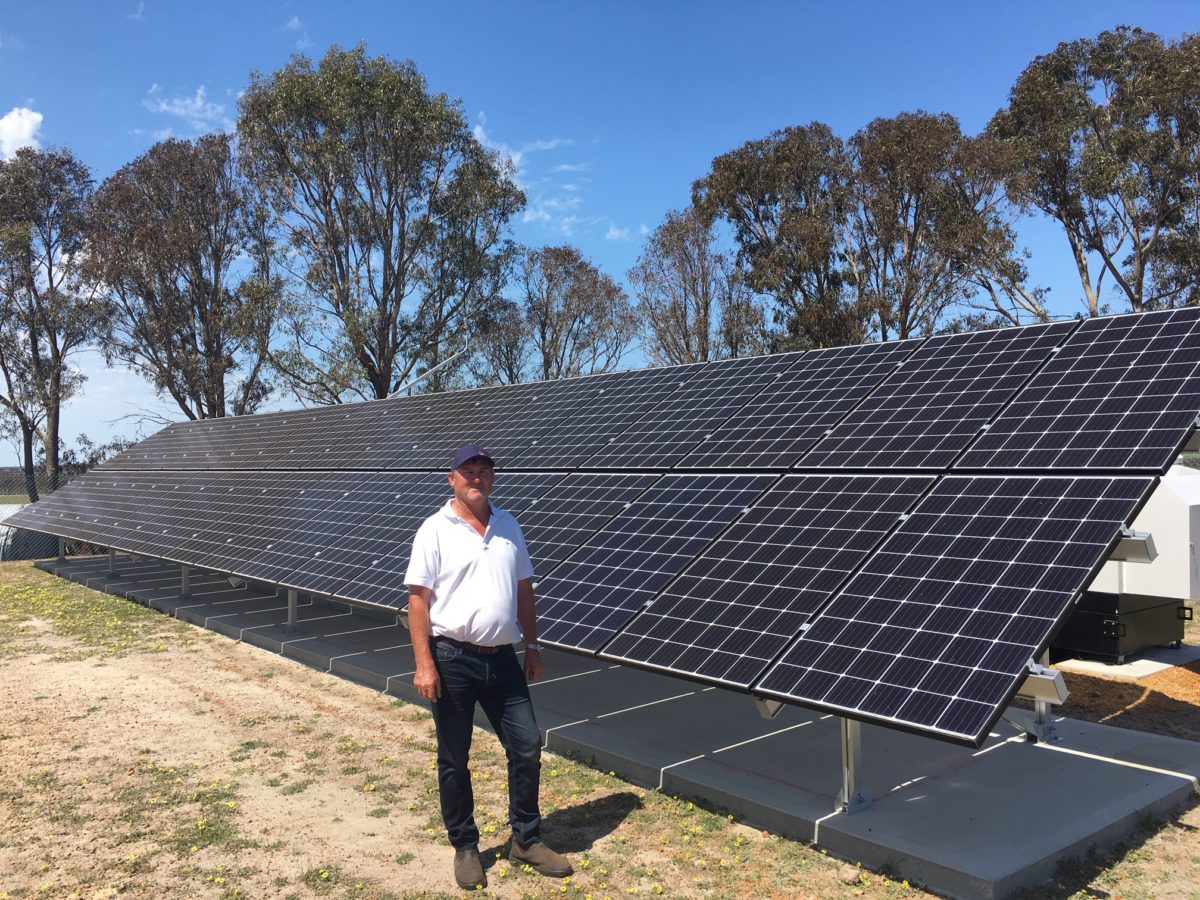At the edge of the grid, in the Goldfields-Esperance region of Western Australia, 17 properties will have a clear view to the horizon by the end of this year, as 64 kilometres of poles and wires come down in favour of standalone solar-battery-diesel systems installed by Horizon Power, which is rethinking solutions to the reliability of rural energy supply.
“Standalone power is a viable alternative in remote locations where poles and wires are prone to outages caused by lightning strikes, bushfires, vegetation and bird strikes,” said Horizon Power CEO Stephanie Unwin in a statement as Neridup farmer Nick Chapman’s property went off the grid last week.
In what it claims is the first such off-grid renewable solution to be offered by a powered provider, Horizon’s 17 standalone power systems (SPS) each includes a solar array of between 10.8 kWp and 16.2 kWp; and a battery of between 9 kWh and 50 kWh capacity; and most are integrated with a backup diesel generator.

Image: Horizon Power
Horizon Power told pv magazine that the generator on any single system is likely to run for fewer than 500 hours a year, and that, “It is expected that the carbon intensity of power supply will be reduced” compared to previously gas-generated electricity from the grid.
Some of the properties will not have diesel backup, says Horizon, with their needs expected to be met solely by the solar-battery combination of technologies.
In a statement that reflects changing mores in grid thinking, Horizon Power said that for consumers on the edge of the grid, renewable-powered off-grid systems provide energy solutions that are “safer, cleaner and more reliable than traditional poles and wires”.
Wool, wheat and watts powered by the sun
Chapman’s main electricity requirements are for his home and farm operations, which include shearing.
“At shearing time, power reliability is everything,” he says. “This is one area where the SPS unit will ensure there’s no risk of my shearing contractors standing around because of power issues.”
The tariff and pricing structure for electricity on the 17 properties will remain as it was when they were grid connected, and Horizon will maintain the SPS systems, including refuelling and servicing of the generator, at no additional cost.
Removal of poles and wires from paddocks and roads around the properties has benefits that only farmers can truly appreciate: “We won’t have to manoeuvre large farming machinery around power poles,” says Chapman, and aerial crop-spraying contractors, who fly close to the ground, will more quickly and efficiently be able to carry out their work.
Farmers will also be able to “maximise land usage”, says Chapman, because they won’t have to maintain buffers of land around each pole to reduce fire risk.
Unwin notes that, “We only have to look back at the fires of 2015 to see how important this new energy solution can be for the safety of a community.”
The perhaps unforeseen benefits of removed infrastructure roll on with Chapman citing the reduced risk of large farming machinery being damaged by run-ins with poles and wires. “That might sound odd,” says Chapman, but “during seeding and harvesting we’re operating machinery around the clock and poles become difficult to see at night time.”
As the West Australian Government’s regional and remote electricity provider, Horizon Power delivers energy to more 110,000 homes, communities and businesses across some 2.3 million square kilometres.
“Over the last three years,” says Unwin, “we have successfully demonstrated technologies such as SPS, which improves reliability of power supply and safety for our customers and can offer sustainable energy solutions at a lower cost than traditional solutions.”
This content is protected by copyright and may not be reused. If you want to cooperate with us and would like to reuse some of our content, please contact: editors@pv-magazine.com.









“As the West Australian Government’s regional and remote electricity provider, Horizon Power delivers energy to more 110,000 homes, communities and businesses across some 2.3 million square kilometres.”
As we read stories about California’s wildfires and utility PG&E invoking a PSPS or Public Safety Power Shutdown that could last for days, I can see one solution to power lines strung along on poles for kilometres. Small micro-grids interspersed within remote areas, without the long grid connections of the past.